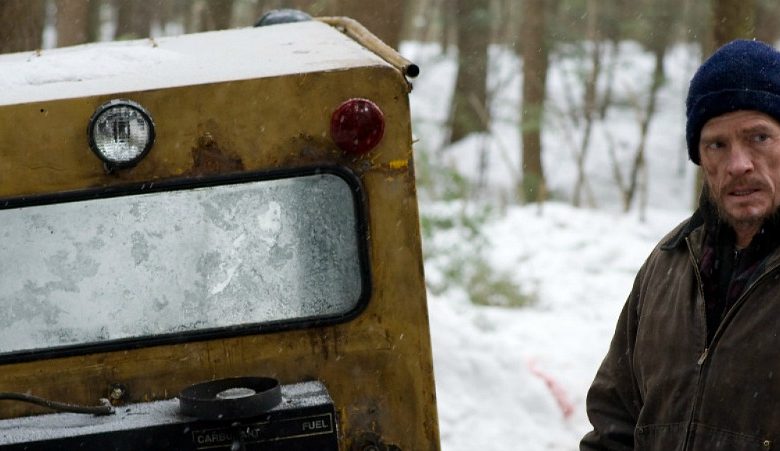
The “Wings” star showed a saltier side in the wine dramedy, a far cry from his sitcom persona. That led to a career reboot – steady gigs in high-profile projects along with the ultimate show of respect in today’s Hollywood. He snared a super-villain role in “Spider-Man 3.”
Church commands a surprising level of sympathy in the Canadian drama “Whitewash.” The film, now on DVD, casts him as a sad sack who accidentally kills a man and covers up the crime.
It’s an Actor’s Role with the accompanying capital letters, but Church isn’t here to put on a show. He’s embedded deep into his character, a man whose knack for survival is as keen as his willingness to postpone reality.
Church plays Bruce, an alcoholic who runs his small snow plow into a man (Marc Lebreche) in the middle of a rural Quebec street. The stranger is dead before we can absorb the sickening smack his body made against the plow.
Is the man really a stranger to Bruce, or did the two meet days before the accident?
“Whitewash” toys with narrative conventions, making us wonder if the events unfolding actually happened or are playing out in Bruce’s guilt-soaked mind. It’s not for the casual movie goer in search of goosebumps or pat scenarios. It’s compelling all the same, even if the sight of Bruce trudging through the snow soon grows stale.
DID YOU KNOW: Thomas Haden Church worked as a radio deejay in Texas before making the move to Hollywood.
Director/co-writer Emanuel Hoss-Desmarais trots out every sound you might hear in a frosty expanse to establish both texture and Bruce’s sense of isolation. We hear the twigs crack under his boots, the crunching snow he turns into an impromptu shelter and the wind that slaps him while he eludes the authorities.
It’s like a mirror image of “All Is Lost,” a tale of survival for all the wrong reasons.
Yet Church won’t allow us to root for Bruce’s capture. We learn more about Bruce as the fractured narrative unfolds, and Church fills in enough blanks to humanize the character’s state of mind. He slumps when he finds a stash of beer that’s frozen solid, stuffs hamburgers into his coat pockets when he fears getting caught and bemoans the sight his frostbitten toes.
Is “Whitewash” a statement about our ability to postpone the inevitable or our capacity to deny the truth about life and its consequences? It could be all of that and more, but it’s primarily a chance for Church to remind us just how easily he rises to the challenges found in unconventional parts.
